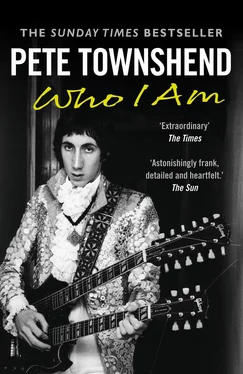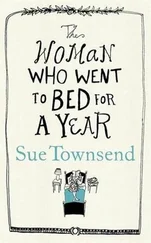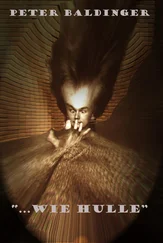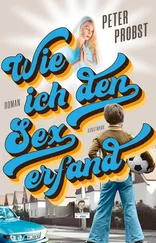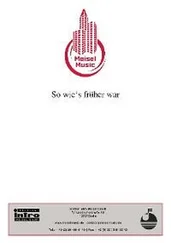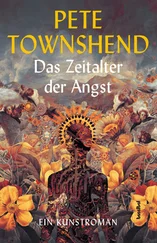Through this deal Kit and Chris kept control of the band, but at the time we knew nothing of the punitive settlement Kit had to make with Shel. The summer dragged on, the band’s antics on stage becoming a parody of auto-destruction complete with smoke and flashes. During the finale at the Windsor Jazz and Blues Festival, Keith ran to the front of stage with a whip and a blonde actress in a leather outfit.
In August we recorded ‘I’m a Boy’ and ‘Disguises’ with Kit finally in the producer’s chair. Our new record deal was with Track Records, founded by Kit and Chris with the promise that we would own shares as well as receive royalties. Kit was a joy to work with; he made recording fun, and seemed to be recording a more musical sound, although Roger and I still felt tied to the bluff, tough sound we had developed in The Who live gigs.
Meanwhile I was becoming obsessed with a bigger idea: could I write a real opera?
***
While ‘I’m a Boy’ was being prepared for release as the band’s new single, Karen and I took a holiday to Caesarea in Israel. Her miniskirts were a novelty that attracted a lot of interest, especially from the Arabs, several of whom I had to literally fight off. On one occasion I turned to help from Jewish passers-by, dressed in Western clothing, who interceded before chiding me: ‘What is a young Jewish boy doing allowing such an attractive girl to dress so provocatively?’
When I got home I began to ask people what was going on in Israel. One of my legal advisors, who was interested in international affairs, described the growing tension between Israel and Egypt, as well as the emergent communist threat from China, a country with a population growing so fast, he said, that it would soon dominate the entire planet. This sparked the idea for my first opera, later entitled Rael , whose plot deals with Israel being overrun by Red China. Over the next year I developed the story, and planned to complete it as a major full-length operatic composition outside my work for The Who. I hired a Bechstein upright piano from Harrods and installed it in Karen’s bedroom in her flat in Pimlico. I wrote the first orchestrations there for Rael using a book called Orchestration by Walter Piston that I still refer to today.
After a summer of professional lunacy that included The Who’s first appearance in the beloved Palace Ballroom of my childhood, in the Isle of Man, I completed and assembled demos for a number of tracks intended for The Who’s still untitled second album. I bought a cello and played it on ‘Happy Jack’, a nonsense song I wrote about a village idiot from the Isle of Man. This is Paul McCartney’s favourite Who song – tellingly, because it was partly inspired by ‘Eleanor Rigby’, which I thought was a small masterpiece.
Happy Jack wasn’t old but he was a man
He lived in the sand at the Isle of Man
The kids all would sing he would take the wrong key
So they rode on his head on their furry donkey
But they never stopped Jack, nor the waters’ lapping
And they couldn’t distract him from the seagulls’ flapping
These are the original words, slightly altered on The Who’s version; the atmosphere of the lyric is meant to be Kafkaesque.
Kit and Chris drummed up a deal to get publishing advances for New Action, their own new music publishing house. They told me the advance was contingent on John, Keith and Roger contributing at least two original songs each to the album. I went along with the scheme, since my songwriter earnings on The Who’s hits had protected me thus far and I was happy to help. I’m pretty sure the band members never got the money – it was swallowed up in the enormous debts we all had by this time.
I explained my working method of making demos to John Entwistle, who bought himself a kit like mine and wrote and recorded his first song, ‘Whiskey Man’, in the tiny bedroom at his parents’ house in Acton that he still used as a base. I was the first person in the band he played it to. A week later John added ‘Boris the Spider’ to his list. I loved both songs. I helped Roger demo ‘See My Way’ in my Soho studio; a Buddy Holly-style piece, it was easy to work with. But this time Roger didn’t get any further than that one song, although he later wrote one more for The Who and went on to write quite a few in his solo career.
Keith got John to help him scrape together a lyric for Keith’s song ‘I Need You’, inspired by seeing The Beatles at the Ad Lib club in London, and I recorded the demo with him in Soho. It was a nightmare trying to work out the melody, as Keith’s singing was so tuneless. His second song, a rip-off from a film score banging around in his head, he merely whistled at us. We all knew we’d heard it somewhere before, but couldn’t place it at the time (it turned out to be ‘Eastern Journey’ by Tony Crombie). This became ‘Cobwebs and Strange’, a bizarre marching-band tune that was great fun to record because we actually marched around the studio while it was taped. John played trumpet, I played banjo, Keith a big bass drum and Roger the trombone – quite brilliantly, I thought. We overlaid the band over the marching track. I added penny whistles, and with Keith’s cymbals it ended up sounding like the accompaniment for a circus act.
I had been discouraged from submitting any additional material to The Who’s second album in order not to upset the necessary balance for the New Action publishing deal, so none of our recent hit singles appeared on the album. In a mad rush to fill the gaps left by this default, we added ‘Heatwave’, a Tamla song we always played on stage, but there was still a ten-minute hole. Kit came to see me at my Soho studio and I played him a few works in progress, songs about rabbits, fat people and ‘Gratis Amatis’, the opera dedicated to Kit and our beloved mutual friend the composer Lionel Bart. Kit asked whether I could put together a more serious pop-opera piece with several distinct strands, perhaps based around ‘Happy Jack’. If I could, this would fill the entire hole in one fell swoop, and the record could be released quickly.
Quick, quick, quick. ‘A Quick One’ became our new watchword and the title of the new album when it was finally released. I scribbled out some words and came up with ‘A Quick One, While He’s Away’. This became known as the ‘mini-opera’, and is full of dark reflections of my childhood time with Denny.
Since so much of this music bubbled up urgently from my subconscious mind, I’m left to interpret it much like anyone else. The music begins with a fanfare: ‘dang, dang, dang, dang’. Someone has been ‘gone for nearly a year’. This could be ascribed to the dereliction of both my parents, neither of whom saw much of me while I lived with Denny. As a result, ‘your crying is a well-known sound’. That crying was mine as a five- and six-year-old, night after night, for my parents, for my friends from Acton and my freedom from Denny.
A remedy is next promised: we’ll bring your lost lover to you, ‘we’ll give him eagle’s wings, and he can fly to you’. At this point in my own story Rosie Bradley observed my suffering and quietly promised me she’d phone Dad and explain how crazily Denny was behaving, and he would surely come and rescue me. Suddenly the lyrics darken: ‘Little girl, why don’t you stop your crying? I’m gonna make you feel all right.’ This is chilling to me even today: the implicit threat of abuse unless the child cooperates with the abuser. But ‘little girl’? In my mind I was never alone when I lived with Denny – my imaginary constant friend was a twin girl who suffered every privation I suffered.
Ivor the engine driver may well represent my abuser: ‘we’ll sort it out back at my place maybe’, and ‘better be nice to an old engine driver’. Denny took in men from the bus garage and the railway station opposite her flat all the time, and I still have nightmares in which my bedroom door opens in the middle of the night and a shadowy man and woman stand watching me, the perfume of eroticism in the air.
Читать дальше
